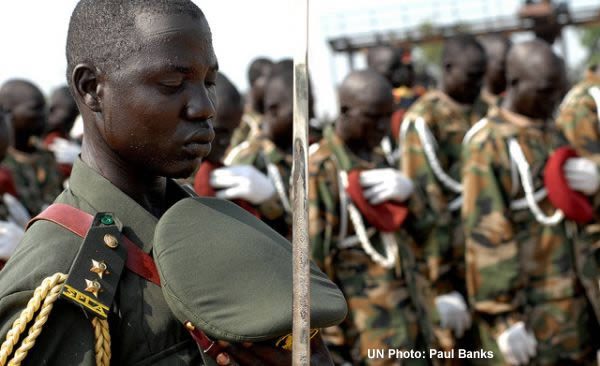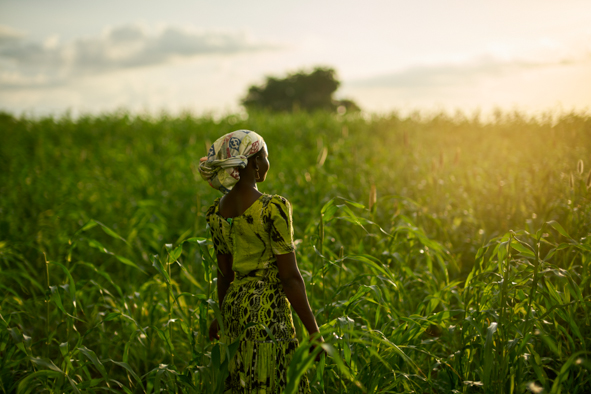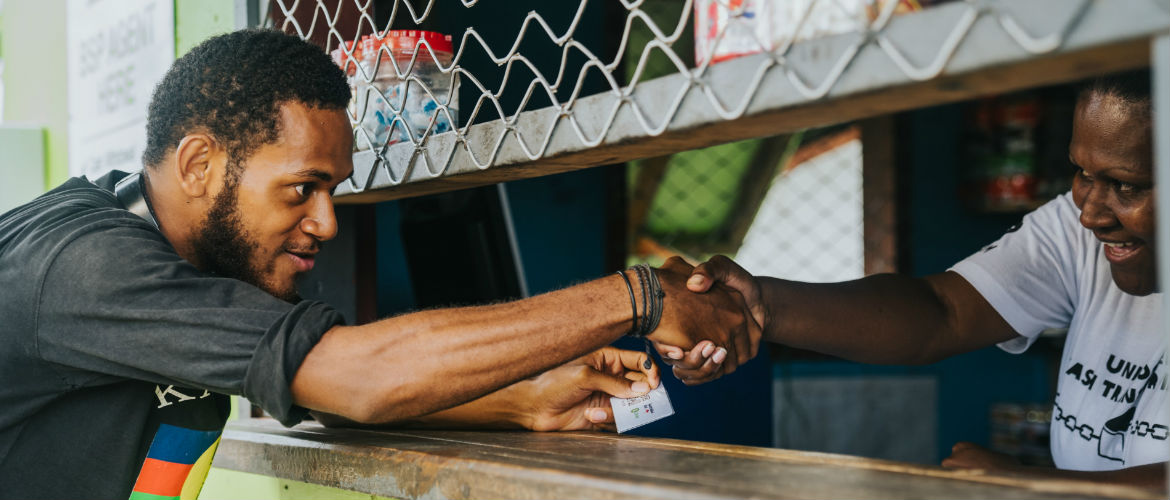On Saturday South Sudan became the world’s newest country, and Aguet walked literally thousands of miles to get here. When war broke out in 1983, she was just four years old. One night her family fled their home in Bor town, and Aguet spent most of the next nine years on the move, walking across Sudan, joining the army and living in refugee camps in Ethiopia and northern Kenya. She returned to Juba in 2005 after the signing of the peace agreement, and is now working for Oxfam’s emergency response team. In the lead-up to Independence, she writes from South Sudan:
“I started walking when I was seven years old, in the middle of the war. I got to Ethiopia and started school in a refugee camp. I joined the army at the age of nine and moved with them after we were displaced from Ethiopia. My jobs were to help with the cooking and keep the morale of the army high with songs. We made the flag that you see today in South Sudan as a show of our hope. Today it is flying in Juba.
“This weekend we will go to the celebrations, we will dance. There will be dancing from all the tribes in South Sudan, and together we will show the happiness we feel for this new country and a new beginning. Independence Day for me means that my children will not have to live like I lived. I grew up in fear, I slept nowhere and everywhere, I ate quickly – always on the move. Now my children know that they can be whatever they want, and they don’t live in fear. Before there was nothing, now we have a future.
“When we were fighting we were told, ‘Never give up, always hope, because things one day will change’. We are now seeing the change we have hoped for. When I first came back to Juba in 2005, this was not a nice place. There was no food in the market, there were no latrines here, the hospital building was full of rubbish and smelt badly and the university was empty. Now, we have a hospital that people can receive medical help in; it is clean; we have people going to university and learning in Juba; and there is food in the market. This city looks totally different now.
“If you go outside Juba to the villages things are changing every day there too. In almost every village there is an NGO and a lot of people now have access to some facilities. Children are going to school, they aren’t fighting. Before peace people didn’t know about schooling or proper health care… now they know. NGOs have helped people overcome simple diseases like diarrhoea: education about washing hands is making all the difference to people’s lives.
“This is the start, we need to do more. Every child should be able to go to school. We need good quality education in every village. We need peace across the country and we need educated children. We need to build this country. We have to develop our agriculture. We grow mangoes and other fruits, but we need the roads to move our products. If we develop the agriculture then we can feed ourselves. We should get rid of the guns too. War happens too quickly because of guns.”
Read more about Oxfam’s work in Sudan


 Doris*, daughter, 5; Pamila*, 2. Christina grows maize and she was shown how to make compost as part of the CRAFS (Climate Resilient Agriculture and Food Systems) programme.
Doris*, daughter, 5; Pamila*, 2. Christina grows maize and she was shown how to make compost as part of the CRAFS (Climate Resilient Agriculture and Food Systems) programme.